The 2011 Tour: Cadel Evans' perfect race
How Australia's first Tour winner finally won the biggest race in the world.
Words by Edward Pickering
Wednesday June 19, 2012. This article first appeared in Cycle Sport September 2011.
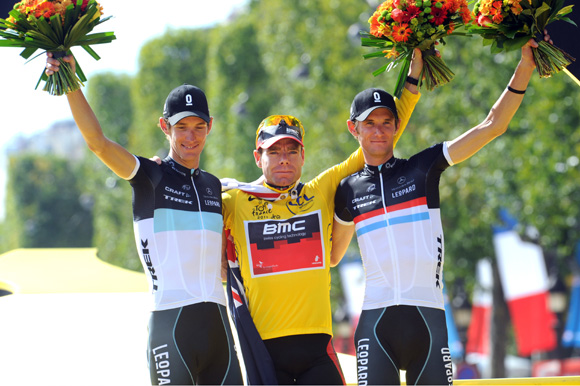
In the end, it was like one of those murder mysteries where the guy who did it was the one you should have suspected all along, but just didn’t.
The 2011 Tour travelled from the Vendée, through Brittany and the Massif Central, over the Pyrenees, and still we talked about the Schlecks, Alberto Contador and Thomas Voeckler. Cadel Evans remained an afterthought for many right up to the summit of Alpe d’Huez, when the cycling world suddenly realised, in a masterful plot twist that the Australian was going to win. And looking back, we should have known it was him all along.
Evans triumphed in the Tour de France with a passive-aggressive masterpiece of doggedness, occasional boldness, patience, timing, strength and luck, or at least a complete absence of bad luck. And when he stood upon the podium in Paris, relief and disbelief etched onto his face, the cycling world suddenly realised, we’d been waiting for this as long as Evans.
The Australian has rarely won plaudits for aggressive or particularly entertaining riding (although the attack en route to his Worlds win in 2009 was all the more impressive for its rarity), but nobody could deny that he’d just about ridden the perfect Tour. Even though Andy Schleck was more aggressive, Thomas Voeckler more brave and Contador more enigmatic, Evans had enough of each quality to beat them all.
Get The Leadout Newsletter
The latest race content, interviews, features, reviews and expert buying guides, direct to your inbox!
Until Alpe d’Huez on July 22, two narrow second places in 2007 and 2008 looked to be all that the Tour was prepared to give Evans. Now it has given him an overall win. We always wonder where new Tour champions will fit into the pantheon of former winners, but Evans has already put in the hard miles of earning the respect and affection of the cycling world. For a man who's often looked uncomfortable in his own skin, the yellow jersey fitted him perfectly.
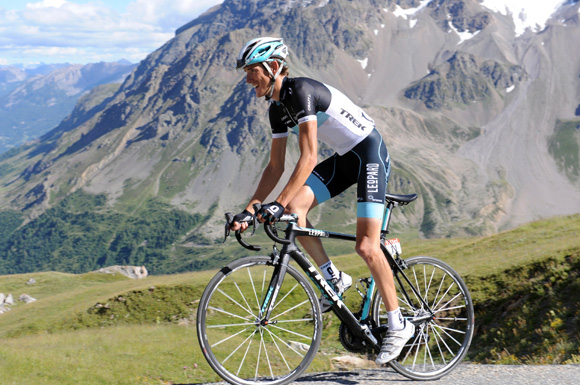
But Evans wasn’t the only story of the 2011 Tour. His victory was given extra lustre by the attacking riding of Andy Schleck in the Alps. The fight between these riders of different strengths turned this year’s race into an instant classic. Schleck’s long-range attack over the Izoard to the Col du Galibier awakened something at the Tour: the memory of great races in the past. We’ve all mocked his Leopard team’s vacuous marketing-inspired slogan True Racing, but if anything, Schleck surpassed it.
The Tour was also graced by the renaissance of the French: Thomas Voeckler was one of the race’s most animating forces in the first week, rewarded by a yellow jersey in St Flour. His battle to keep it, which ultimately overlapped significantly with the battle for the overall win, astonished us all. Alpe d’Huez stage winner Pierre Rolland, who also took the white jersey, and top 10 rider Jean-Christophe Peraud also shone for the home nation.
And two more riders, both of whom won stages and wore the yellow jersey, lit up the Tour with their aggression and judgement. Philippe Gilbert and Thor Hushovd are more famous as Classics riders, but they brought something of the attacking verve of their speciality, transplanted it into the Tour, and the race was richer as a result.
But the most interesting and exciting thing about the 2011 Tour was its humanity. It’s too soon to talk of a clean Tour. But to us, this looked like a cleaner Tour. While there are always qualifications – wind, heat, fatigue, route and many more mitigating factors – the climbing times of the 2011 Tour were markedly slower than the 1990s and 2000s. Samuel Sanchez was the fastest rider up Alpe d’Huez, with a time of 41-21. That’s over 10 per cent slower than Marco Pantani’s course record. At Luz Ardiden and Plateau de Beille, climbing times were much slower than previous years.
Nobody’s declaring the war against doping won. But the impact of the blood passport, ever-improving tests, the no-needles policy and the cultural change led by certain teams have all contributed. The result: a cleaner Tour, and we believe it is no coincidence that it was a more exciting Tour as a result.
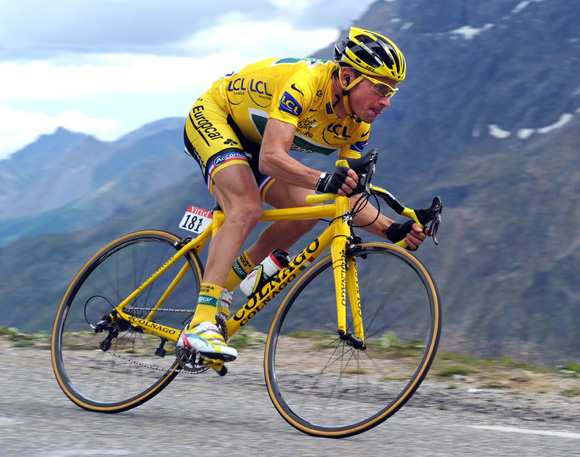
Five yellow jerseys
Five men wore the yellow jersey during the 2011 Tour – Gilbert, Hushovd, Voeckler, Andy Schleck and Evans, and while there were as many interesting sub-plots throughout as there were riders in the entire field, these five were also the dominant characters of the race.
That’s not to say that Mark Cavendish wasn’t dominant – it’s a mark of just how unique the Brit’s presence in the Tour is that he maintained his extraordinary strike rate, winning his 16th, 17th, 18th, 19th and 20th stages. Edvald Boasson Hagen won two stages – one sprint and one solo in a middle mountain stage, while André Greipel and Tyler Farrar both took Cavendish’s scalp. But for Cavendish and the sprinters it was business as usual – the tactics of the flat stages didn’t change, nor, often, did the result. It will be interesting to see if ASO vary the finishes more over the next few years. On one hand, the most successful road sprinter in the history of the Tour deserves his chance to make history and continue winning stages. On the other, predictability is only one step removed from stagnation.
As the five men of the Tour passed the yellow jersey one to the next, their impact on the race wasn’t diminished. Gilbert, for example only wore the yellow jersey for a handful of minutes, during the team time trial, but he was constantly on the attack through the first two weeks, making an unlikely but sustained and imaginative attack on the green jersey. In going on the attack in the closing kilometres of some stages, an impossible task against a raging peloton, Gilbert reminded us of the glory to be had in trying and failing. Conservative tactics win races. Carefree attacking wins friends.
Hushovd, for his part, only relinquished his yellow jersey on the second day in the Massif Central, having held onto it up the climb at Mûr de Bretagne, and more surprisingly at Super Besse. Then, back in the more prosaic colours of the world champion, he won a mountain stage. And another. The Tour couldn’t have gone any better for him. His Garmin team didn’t win the most stages, nor did they win the overall. But for all-round entertainment, strength and imaginative tactics in the face of opposition which was superior on paper, Garmin were the team of the Tour.
But it was Voeckler’s hold on the yellow jersey which defined this Tour. Seven years previously, he’d surfed a wave of national goodwill all the way through the middle week of the Tour, holding the same yellow jersey against the odds, before Lance Armstrong and the other contenders trounced him in the Alps.
This time, Voeckler defended his jersey through two tough summit finishes in the Pyrenees, looking confident and resilient.
Times have changed since 2004. The Tour is ridden differently, and riders who, for years, had to scratch around behind powerful, almost superhuman GC riders, can suddenly compete. Voeckler’s a little bit lighter and stronger than he was in 2004, and the level of the frontrunners has dipped, except for Evans, who has steadily plodded on through. As the Tour relaxed into its second rest day, we wondered if Voeckler could actually win the thing.
Voeckler eventually lost the yellow jersey at Alpe d’Huez. But he lost the Tour during the two downhill skirmishes to Gap and Pinerolo, conceding time on both days.
He wasn’t the only one. Andy Schleck also lost large chunks of time into Gap, as he was caught out on the descent of the Col de Manse. But paradoxically, it was his large deficit from these two stages that incited his famous attack on the Col d’Izoard.
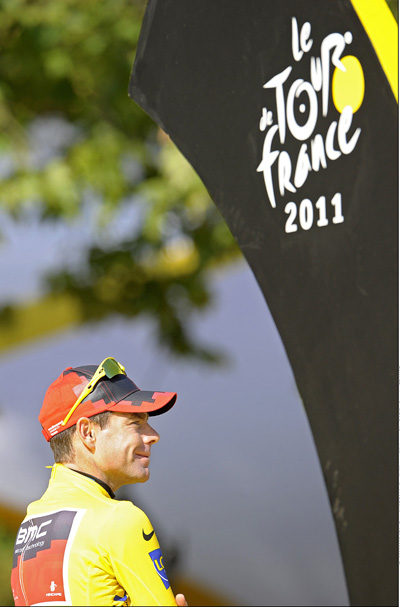
Leopard’s tactics until this point had been unimaginative. They’d employed the US Postal method of trying to burn off their leaders’ rivals by setting a fast pace up the mountains, leaving it to the final climb of the day. But this doesn’t work any more – the physical level of the favourites is so close that it turns into a time trial of similar riders up a hill.
But Schleck realised that while physically, the favourites were close, surprise tactics could create that distance. When he went on the Izoard, many kilometres from the finish, nobody had a clue what to do, because they’d forgotten how to deal with such a situation. On Luz Ardiden and Plateau de Beille, attacks were shut down almost as a reflex, showing how ready the favourites were for them. On the Izoard, however, nobody moved, and Schleck was quickly able to build a lead of four minutes. By the time Evans realised something was up, the others had realised they had him in a box, and he had to chase virtually on his own. Although Schleck’s attack didn’t win him the Tour, it was an exploit which suddenly broadened the horizons of ambitious riders, illustrated perfectly the next day when Contador attacked on the Télégraphe.
But the final yellow jersey of the race was Evans.
Did he ride the perfect race? He was in the top three from stage one to 17, dropped to fourth for one day, then rose to third again before taking the yellow jersey in Grenoble. He avoided the crashes. He gained seconds in the uphill finishes. He minimised his losses very well in the team time trial. And in the mountains, he was more or less undroppable. When Schleck was on the attack, Evans was the only rider to chase, and in pulling him back gradually, took responsibility for winning the Tour.
Apart from cleverly getting himself off the front of the race into Gap and Pinerolo, and some damaging accelerations on Luz Ardiden, Plateau de Beille and Alpe d’Huez, Evans spent most of the Tour trying not to lose it.
And then, in the Grenoble time trial, he was able to try and win.
EXPERT PANEL

Edward Pickering, Deputy Editor
BEST TOUR EVER?
1989 will always be my original teenage crush. It was the best one since then, however, but only because the Alps were so good. Before then, it was a bit of a Test Match.
WHAT DID YOU LIKE?
Loads. The French, Voeckler and Rolland especially, but also Peraud and Coppel. Andy Schleck’s Izoard attack was brilliant. Garmin entertained me, especially Hushovd. And I’ve not forgotten Gilbert’s great first 10 days. Cavendish is still very fast, isn’t he? And my heart went out to Jérémy Roy on the Aubisque stage.
WHAT DID YOU DISLIKE?
Too many stages shut down by HTC and Omega. I don’t blame them, but the underdogs and attackers don’t have much on their side these days.
BEST STAGE
I was on the edge of my seat throughout the Alpe d’Huez stage. It was desperate, compelling racing. Significantly, the climb was ridden minutes slower than in the bad old days.
WORST STAGE
The wet day in Lavaur was one sprint too many. Apart from crashes, almost nothing had happened in the GC to this point, and it was the 11th stage.
WAS EVANS A WORTHY WINNER?
Yes. He nipped off the front a couple of times on the descents, and did a lot of his trademark surges in the Pyrenees. They don’t win Tours, but they must make the others’ legs hurt. In the Alps, he took sole responsibility for chasing Schleck. And in the TT he was imperious.
OUTSTANDING MEMORY
Waiting for Denis Galimzyanov to come in, outside the limit, at Luz Ardiden. He could have packed long before, but pride kept him riding. He looked wasted at the finish, showing the daily battle many riders have with the Tour.
PRE-TOUR PREDICTIONS
My top five: Andy Schleck, Basso, Frank Schleck, Gesink, Sanchez. Gesink was the only real stinker there, although I should have been kinder to Evans. I also predicted a strong showing for Gilbert in the green jersey, and bigged up Jérôme Coppel. Plus I won a Leffe from Andy McGrath for correctly predicting that JC Peraud would be Ag2r’s highest finisher. Well done me, although I was also convinced that Moncoutie would win the KoM.
Lionel Birnie, Writer

BEST TOUR EVER?
The Alps were excellent entertainment but we forget that after 11 days we were still waiting for the Tour to really get underway. It was the best for 22 years but the 1989 Tour will take some beating for drama.
WHAT DID YOU LIKE?
The way the favourites had to race against each other in the Alps. There weren’t any unbelievably strong, robotic teams burning everyone off before the final mountains.
WHAT DID YOU DISLIKE?
The fact we didn’t get to see whether Bradley Wiggins could challenge. A lot of people continue to write him off but having been at the Dauphiné and having seen the work they had done, I genuinely believe he would have been in the top five, possibly even on the podium.
BEST STAGE
The stage to Serre Chevalier was absolutely enthralling. Schleck’s attack was unexpected and Evans’s long chase with almost no help was courage personified.
WORST STAGE
I thought the opening stage was boring and farcical. Three riders got away. The catch lacked suspense. The crashes ruined the finale and the classification was a mess because of the three-kilometre rule.
WAS EVANS A WORTHY WINNER?
Yes. He calculated brilliantly. Complaining that Evans can’t accelerate like Contador or the Schlecks is pointless. He worked out how to win the Tour and played to his strengths.
OUTSTANDING MEMORY
Voeckler punching the air when he crossed the line on the Galibier, having kept the yellow jersey. To see a rider dig so deep was inspiring.
TOP FIVE PREDICTIONS
1 Ivan Basso – 8th
2 Andy Schleck – 2nd
3 Robert Gesink – 33rd
4 Samuel Sanchez – 6th
5 Cadel Evans – 1st
Ellis Bacon, Writer

BEST TOUR EVER?
No – 1989 was still better, but this goes a close second, I’d say. Better than 1986, even.
WHAT DID YOU LIKE?
The route had something for everyone, and the riders didn’t hold back. And the way it was raced would suggest that this was the cleanest Tour for years. More, please.
WHAT DID YOU DISLIKE?
The unfounded disdain for the Schleck brothers’ tactics. It was nonsense that they weren’t riding an attacking, aggressive race. Even before Andy’s lone breakaway on stage 18, they’d given it a go on the road to both Luz Ardiden on stage 12 and again on stage 14 to Plateau de Beille. They were simply up against a very strong, calm Cadel Evans and an extremely dogged Thomas Voeckler.
BEST STAGE
Stage 18 to the Galibier – an epic stage that had it all.
WORST STAGE
I’m going to say that there wasn’t one. When the GC contenders weren’t duking it out, the sprinters like Cavendish or Rojas were fighting for green, or Hushovd, Voeckler, Gilbert or Jérémy Roy were taking the race by the scruff of the neck.
WAS EVANS A WORTHY WINNER?
Absolutely. He rode the perfect Tour, conserving energy when he could, and riding hard when he had to. It was a measured, textbook performance. He’s clearly waited a long time for all the stars to align in the way they did this time.
OUTSTANDING MEMORY
Voeckler defending his yellow jersey by just 15 seconds on the stage to the Galibier. Quite rightly, the French public loved it. Voeckler knew it, too, and gave that bit extra as a result. If ever there was a rider who knew how to make a living by being the underdog, here he was. Outstanding stuff.
PRE-TOUR PREDICTIONS
I had Andy Schleck for the win, and Frank second. Not far off, but I hadn’t named Evans in my top five; I’d expected only a top 10 from him, and I was wrong. Basso and Gesink disappointed, while Samuel Sanchez was my other top-five pick (he finished sixth). My ‘surprise package’, Tom Danielson, came up with the goods, finishing ninth in his first Tour. Cavendish certainly delivered, as predicted, but also getting green was a bonus, if not a wholly unexpected one.
Andy McGrath, Writer

BEST TOUR EVER?
Not unless you’re an Aussie. But a tough parcours slow-burned to ignite into a captivating finale.
WHAT DID YOU LIKE?
The racing in the Alps: thumbs up to helter-skelter descents and knackered attacking on legendary high mountains. The fascinating fight for the reworked points classification. Thomas Voeckler reborn as a panache-filled Tour contender and doing the maillot jaune proud.
WHAT DID YOU DISLIKE?
The reticently-raced opening fortnight, especially the Pyrenees: favourites these days won’t test their limits till they absolutely have to. The same teams got in the breakaways day in, day out, making the formulaic division between workers and attackers even clearer.
BEST STAGE
The stage to Alpe d’Huez rocked. A constantly-changing script, a French comparative unknown working over Contador and Sanchez, Voeckler losing out, Evans stopping three times on the Télégraphe and still ultimately winning the Tour. It was unhinged and thrilling.
WORST STAGE
Stage fourteen to Plateau de Beille. Uncommitted Schleck attacks lapse into the favourites’ group hesitating and plodding to the finish. What’s to like?
WAS EVANS A WORTHY WINNER?
He took up the responsibility and had a tactical edge to go with his strength. The Schlecks will still be left thinking “coulda, woulda, shoulda” though.
OUTSTANDING MEMORY
Evans grimacing up the Galibier, doing the dirty work to limit his losses to Andy Schleck. That epitomised his Tour: gutsy and intelligent, yet strong and responsible. He recognised that he had to commit, there and then, to win.
PRE-TOUR PREDICTIONS
Save Gesink, my top five was solid: I was the only CS writer to put Cadel Evans in my top five (I had him second, Andy Schleck first), and also got Contador spot on in fifth. As for Brajkovic and Martin… at least the German won the time-trial.
HOW THE GC UNFOLDED
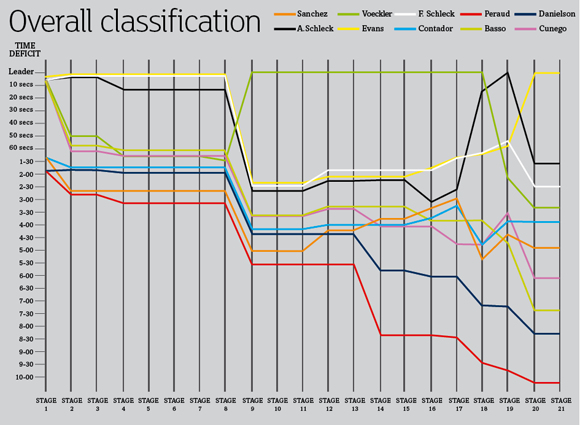
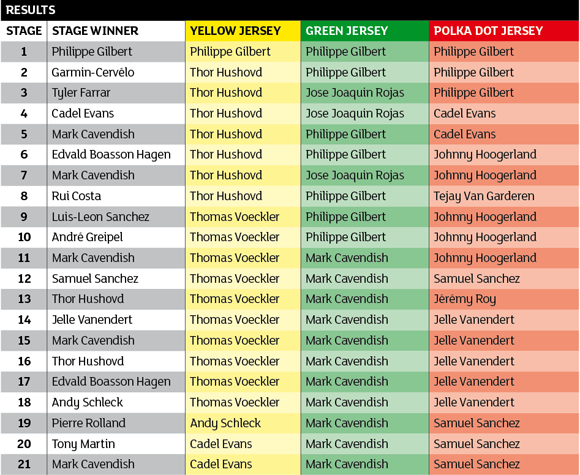
Follow us on Twitter: www.twitter.com/cyclesportmag

Thank you for reading 20 articles this month* Join now for unlimited access
Enjoy your first month for just £1 / $1 / €1
*Read 5 free articles per month without a subscription

Join now for unlimited access
Try first month for just £1 / $1 / €1
Edward Pickering is a writer and journalist, editor of Pro Cycling and previous deputy editor of Cycle Sport. As well as contributing to Cycling Weekly, he has also written for the likes of the New York Times. His book, The Race Against Time, saw him shortlisted for Best New Writer at the British Sports Book Awards. A self-confessed 'fair weather cyclist', Pickering also enjoys running.
-
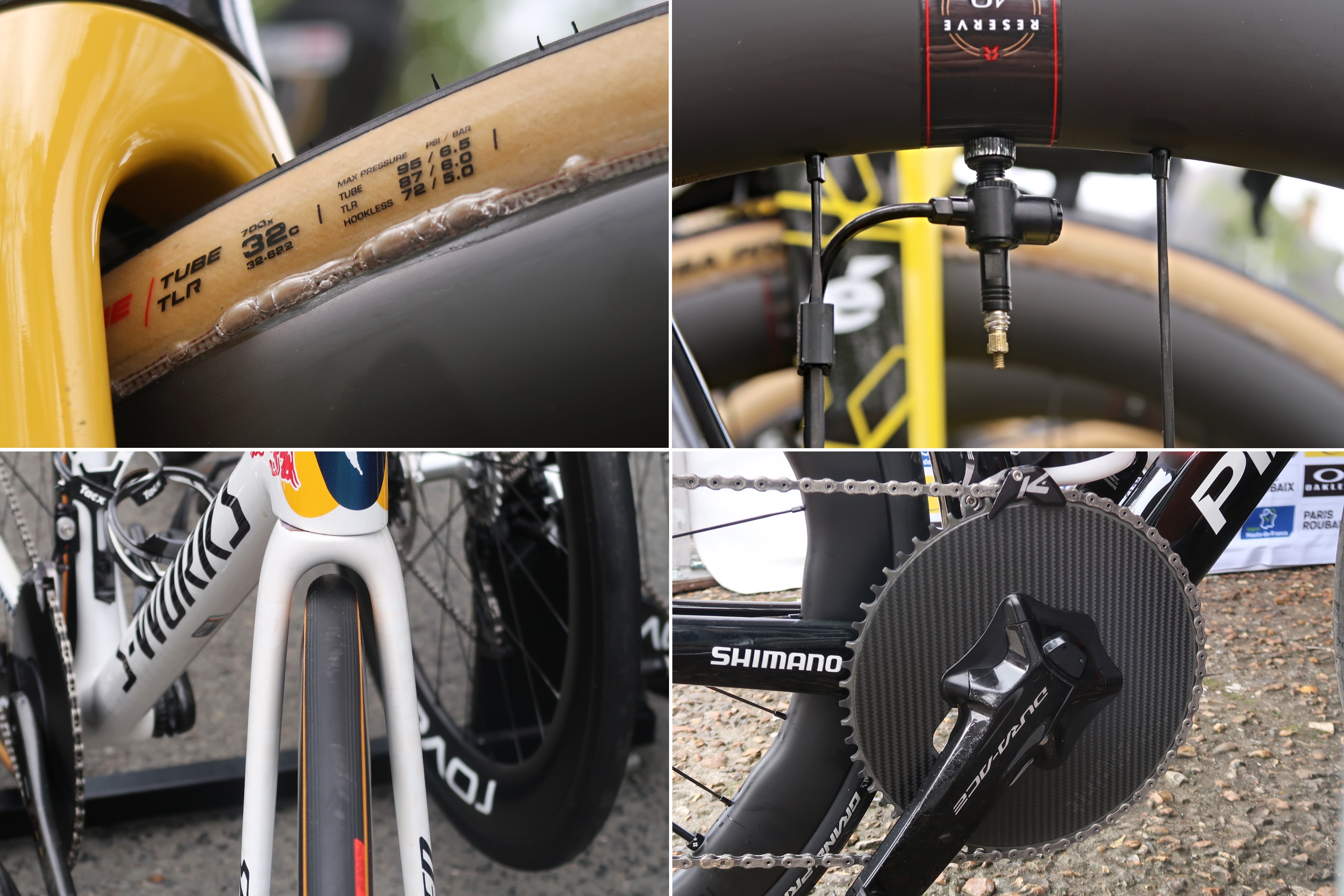 Unreleased wheels, monster chainrings, and surprisingly skinny tyres: Six tech insights from Paris-Roubaix
Unreleased wheels, monster chainrings, and surprisingly skinny tyres: Six tech insights from Paris-RoubaixHere's all the tech mods we spotted at the men's 'Hell of the North'
By Tom Davidson Published
-
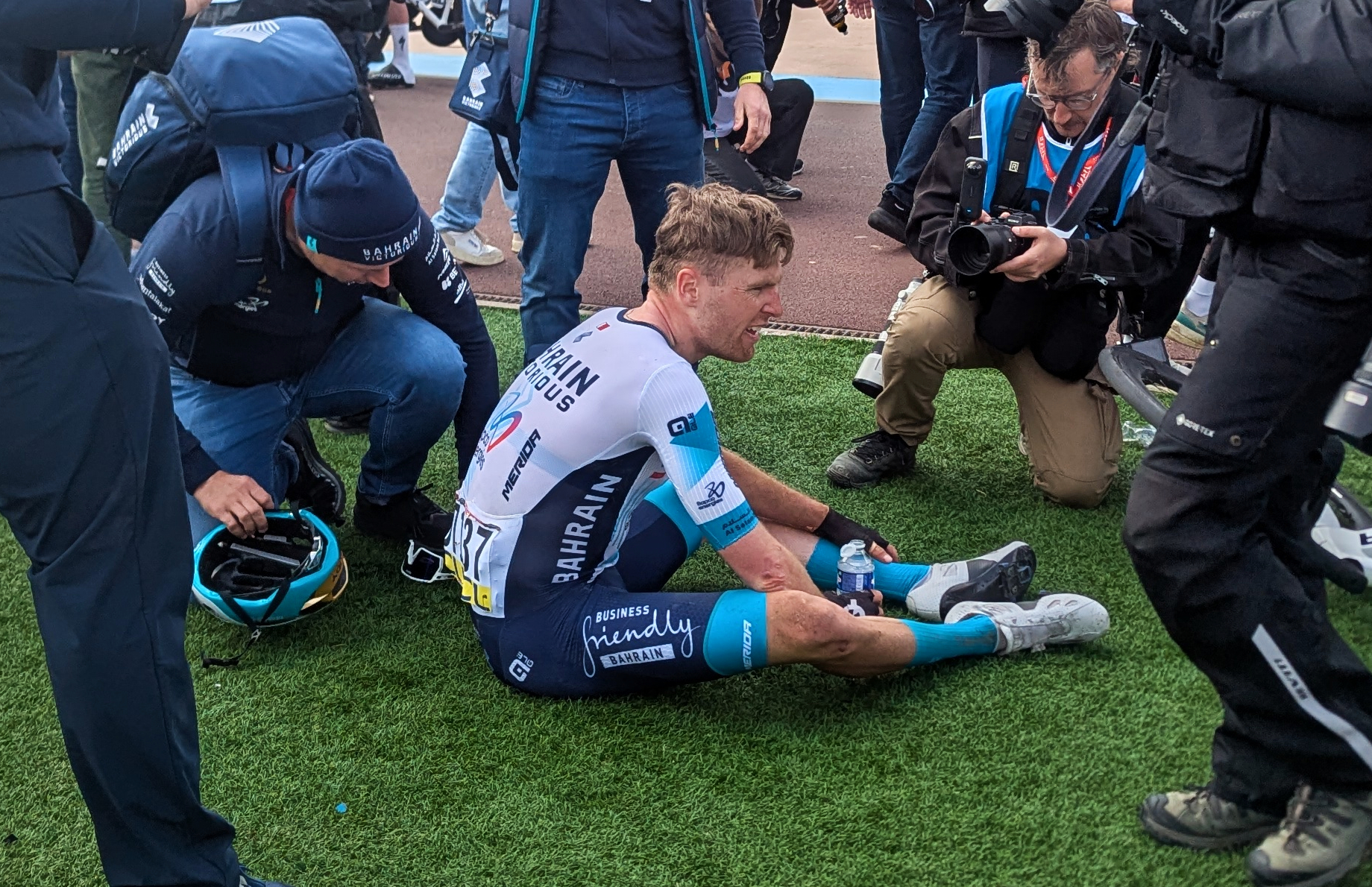 'I'll take a top 10, that's alright in the end' - Fred Wright finishes best of British at Paris-Roubaix
'I'll take a top 10, that's alright in the end' - Fred Wright finishes best of British at Paris-RoubaixBahrain-Victorious rider came back from a mechanical on the Arenberg to place ninth
By Adam Becket Published
-
 Tommy Voeckler fined after motorbike causes Jonas Vingegaard to stop at Tour de France
Tommy Voeckler fined after motorbike causes Jonas Vingegaard to stop at Tour de FranceFrance Télévisions pundit and driver fined 500 CHF and suspended for a stage for incident which saw Jumbo-Visma rider unclip
By Adam Becket Published
-
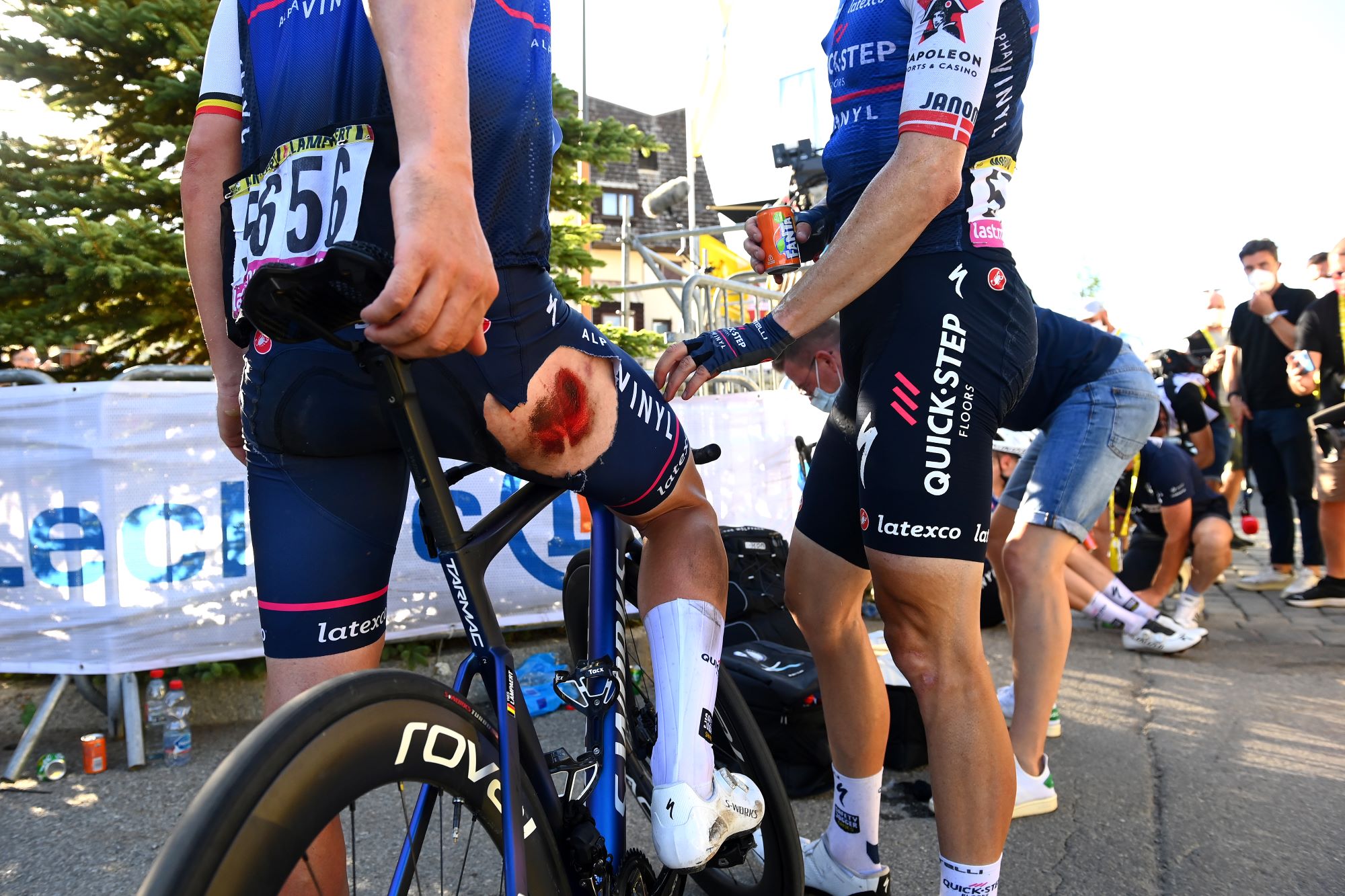 The dog days aren't over at the Tour de France 2022: Canine chaos AND cuteness
The dog days aren't over at the Tour de France 2022: Canine chaos AND cuteness‘Suddenly that beast crossed the street and I couldn’t go anywhere’ - stray dog causes Yves Lampaert to crash on stage 12
By Tom Thewlis Published
-
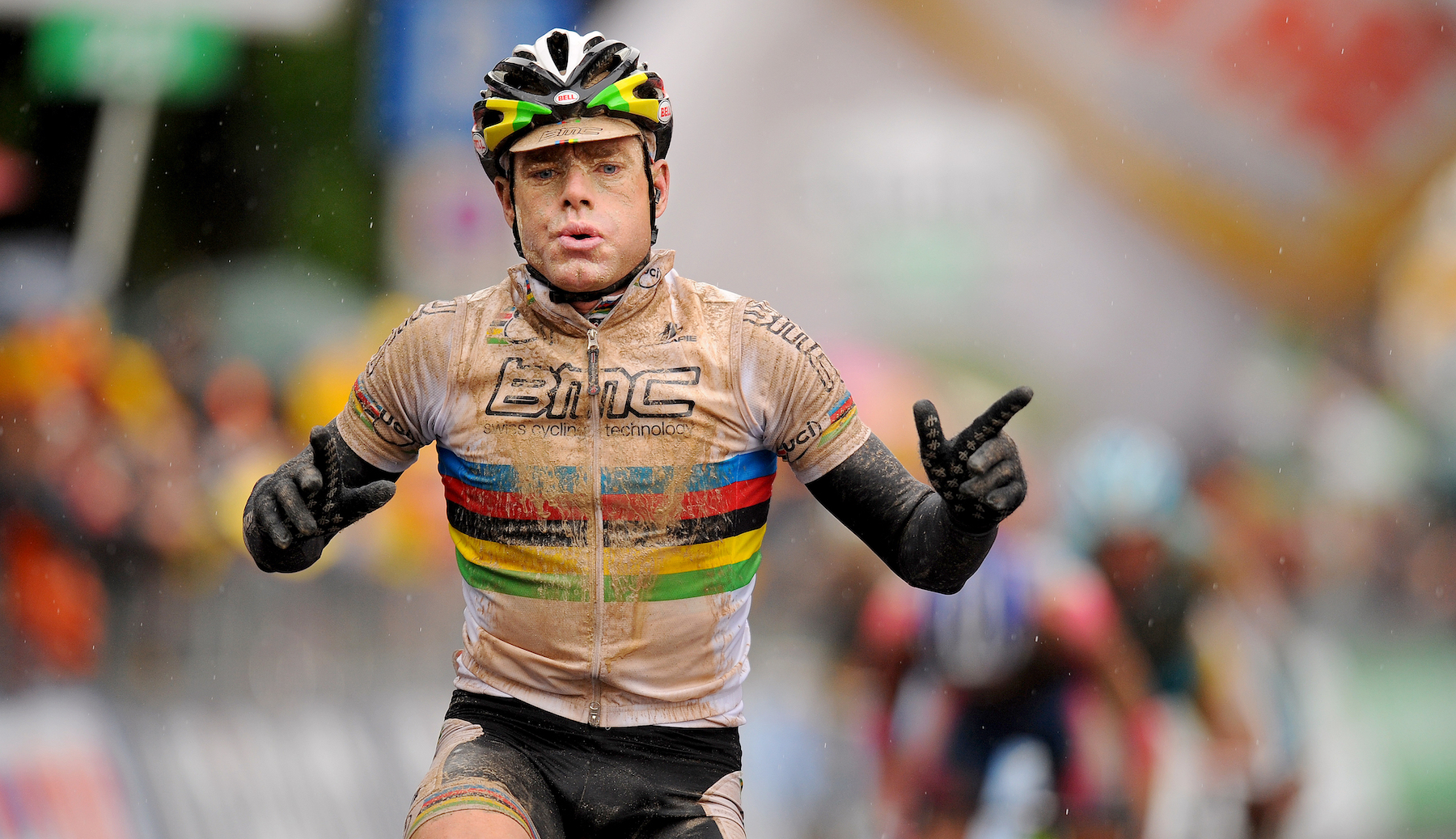 Giro d’Italia 2021: Cadel Evans says Egan Bernal has the advantage on the gravel of stage 11
Giro d’Italia 2021: Cadel Evans says Egan Bernal has the advantage on the gravel of stage 11The retired Australian Grand Tour star won the last gravel stage in Montalcino 11 years ago
By Alex Ballinger Published
-
 CSC team-mate reveals Schleck brothers' feud with Carlos Sastre at 2008 Tour de France
CSC team-mate reveals Schleck brothers' feud with Carlos Sastre at 2008 Tour de FranceKurt-Asle Arvesen reveals the internal feud inside CSC at the 2008 Tour as they claimed the yellow jersey
By Jonny Long Published
-
 Andy Schleck: ‘Alberto Contador did something he shouldn’t have done, even if he denies it’
Andy Schleck: ‘Alberto Contador did something he shouldn’t have done, even if he denies it’The Luxembourger also described winning a Tour de France title on paper rather than on the bike as 'bull***t'
By Jonny Long Published
-
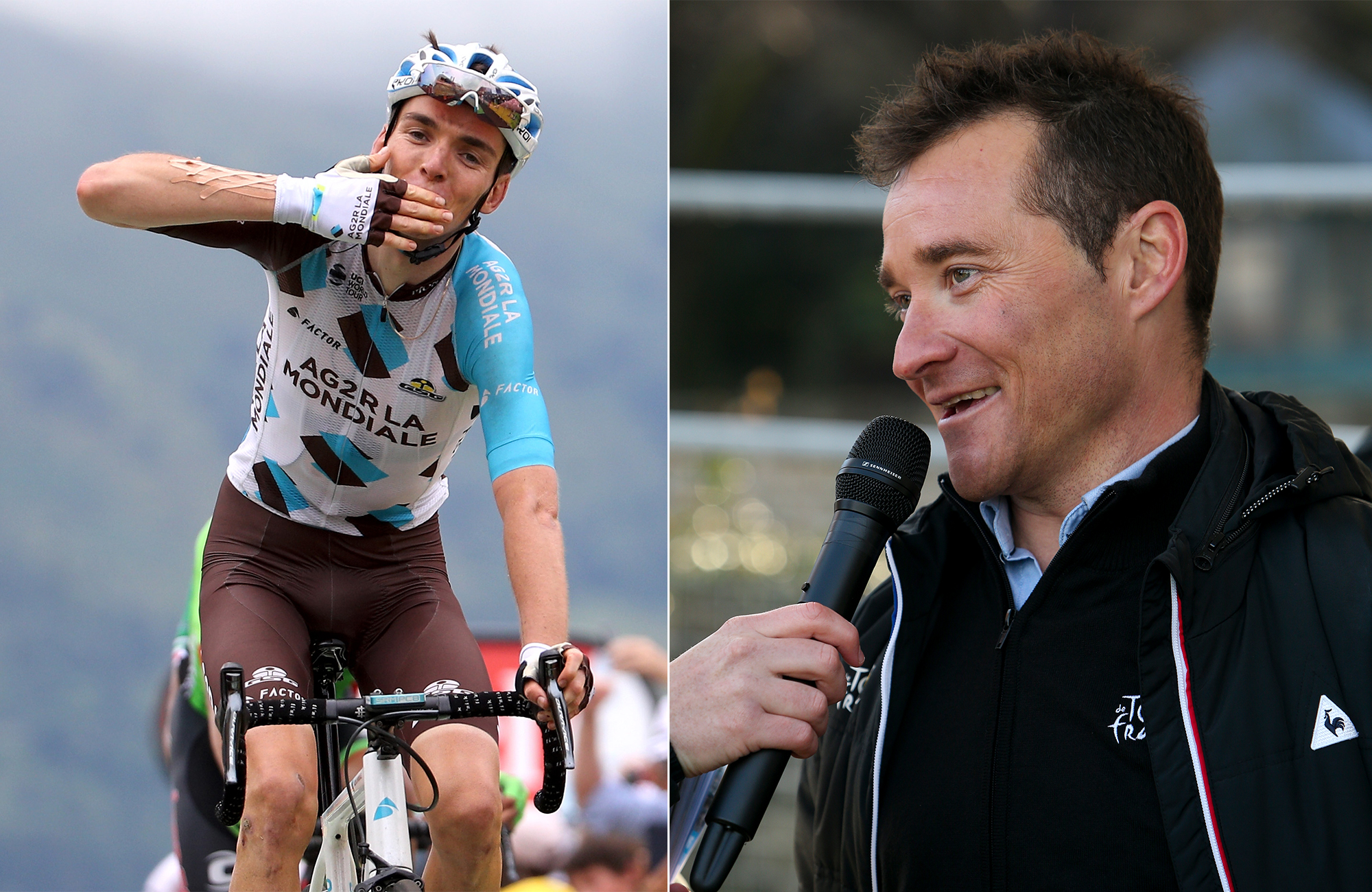 Thomas Voeckler: 'If you don't believe Bardet or Pinot can win the Tour de France 2019, you don't believe in anything'
Thomas Voeckler: 'If you don't believe Bardet or Pinot can win the Tour de France 2019, you don't believe in anything'The Frenchman has backed his compatriots to bring home a first Tour victory for their country since Bernard Hinault in 1985
By Jonny Long Published
-
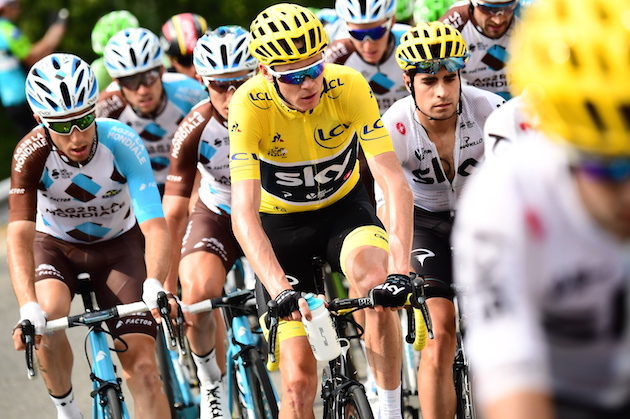 Cadel Evans: 'Froome may not be as strong in Tour de France with double attempt'
Cadel Evans: 'Froome may not be as strong in Tour de France with double attempt'The 2011 Tour winner says BMC and Richie Porte will try and take advantage if Froome shows weakness in the Tour after his Giro attempt
By Gregor Brown Published
-
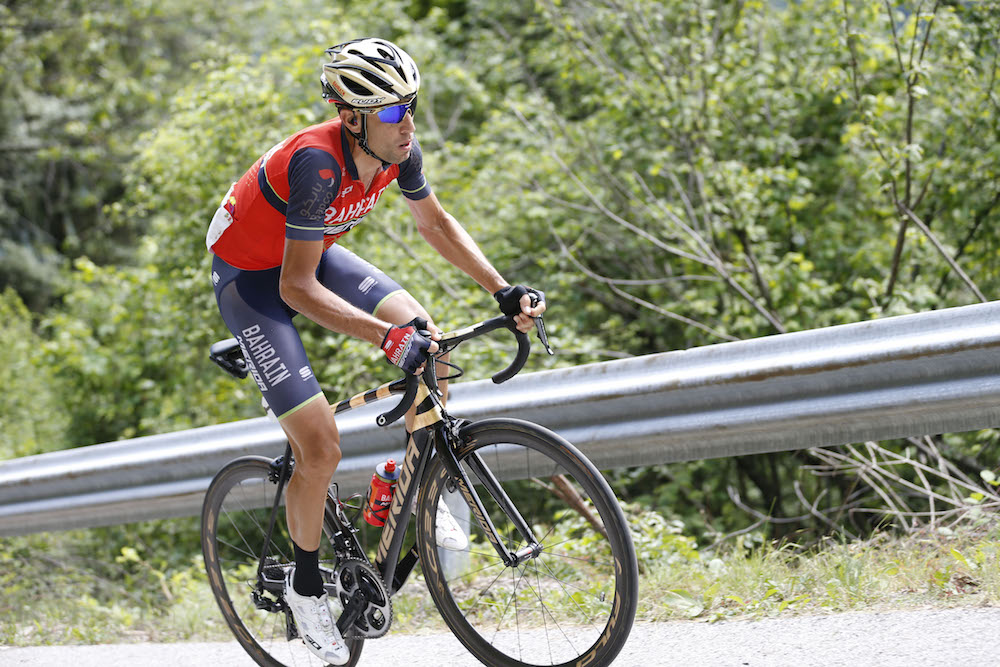 Vincenzo Nibali to join Cadel Evans for gruelling 105km, 3,275-metre hill climb in Taiwan
Vincenzo Nibali to join Cadel Evans for gruelling 105km, 3,275-metre hill climb in TaiwanWith the hill climb season just around the corner, Vincenzo Nibali is set to finish his year with one last uphill test at the Taiwan KOM Challenge.
By Henry Robertshaw Published